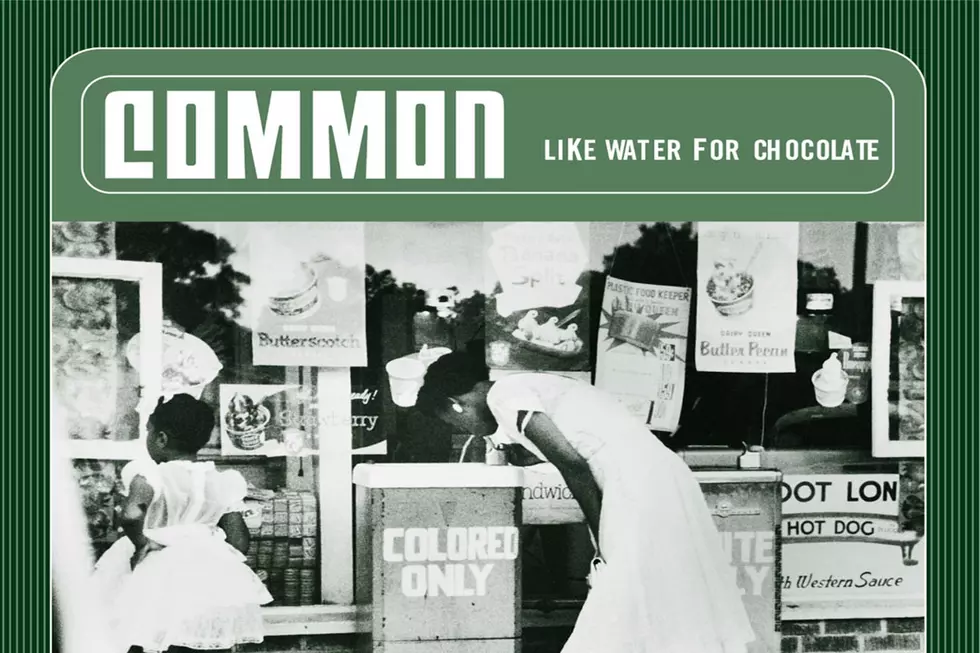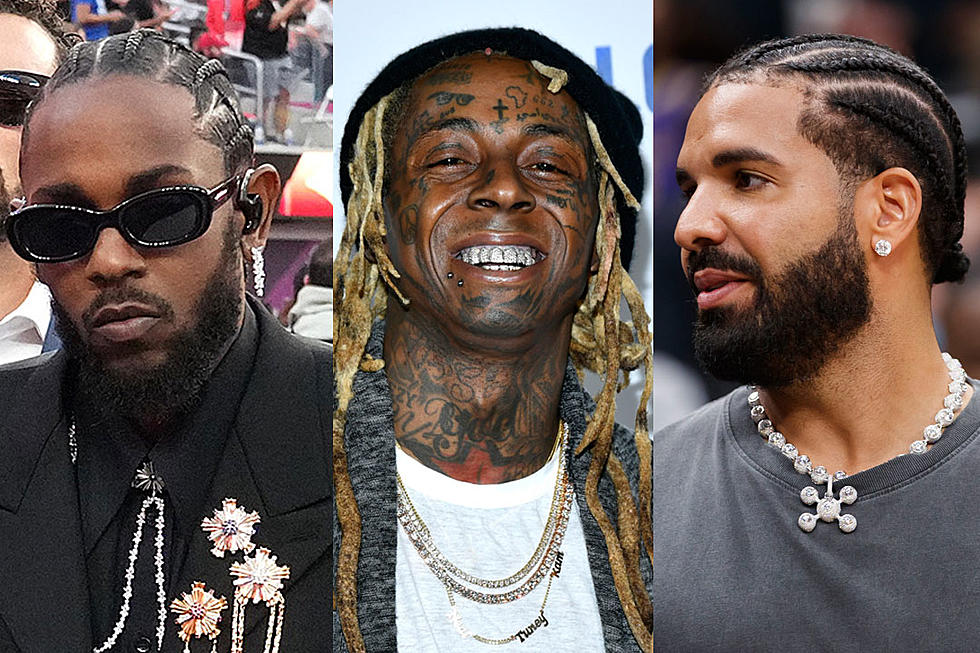
Revisiting Common’s ‘Like Water for Chocolate’ 18 Years After Its Debut
Today, Wednesday March 28, marks the 18th anniversary of Common's mind blowing 2000 LP Like Water for Chocolate, which is widely considered to be his best work to date in what is an impressive catalog.
The events leading up to the release of Like Water for Chocolate were significant for Common, particularly creatively. It found the Chicago emcee stretching out, after collaborating with longtime friend and collaborator No.I.D. on previous albums, including The Resurrection, which dropped in 1994, and1997's One Day It'll All Make Sense. This go around, Com recorded the 16-track project at New York City's Electric Lady, the famed studio built by Jimi Hendrix in the late '60s.
Like Water for Chocolate, which was titled after the novel and film of the same name written by Laura Esquivel, was clearly a sonic pivot for the man born Lonnie Lynn Jr., and that had everything to do with its producer Questlove of The Roots, who would assemble a dream team of musicians to help, including James Poyser, D'Angelo, J Dilla and Karreim Riggins.
The vibe created by the diverse group of musicians— The Soulquarians—proved to be incredibly influential over the next decade. During the time that Common was working on his project, Erykah Badu was forming one of her defining records, Mama's Gun, D'Angelo was working on Voodoo and Bilal was around as well, gearing up for his 2001 debut, 1st Born Second. Suffice to say, the energy was tangible, and it related beautifully throughout the projects it spawned.
For Common, that energy pushed him in a fresh musical direction. Unlike the albums before and after it, Like Water for Chocolate didn't have a heavy boom bap presence—the musicianship throughout it was apparent, and Common and Quest seemed uninterested in banging out a conventional, predictable rap album.
This was evident on the LP's opener, "Time Travelin' (A Tribute To Fela)," which started with the sound of flying seagulls and some Spanish lyrics sung by the Native Tounge affiliate Vinia Mojica. The track also features Afro-beat pioneer, Fela Kuti's oldest son, Femi Kuti. Lyrically, Com went in on the cut and delivered a verse that displayed maturity, as well as some clever, updated wordplay.
"I was a piano player in my last lifetime, now I write rhymes, sip white wine and let my light shine/Out the dark space, with the world on my mind like Scarface," he spits.
On "Heat," Common delivers some of the trash-talking that made him famous on albums like Resurrection, while on "Cold Blooded" he weaves in and out of a funked-out guitar lick. It's a song that raises the intensity of the album and gives us our first glimpse of Common the dad.
It could be said that his battle style comes out most on "Dooinit," where he doesn't waste a single line or hold back any lyrical venom. Com also gets at those rappers who didn't come off as pure originals and stole other people's images.
"You wasn't saying you was a thug before Pac came / Ten years ago you had a high top trying to be like Kane / Then Snoop released and it became a G thang / Claiming sets, your city ain't got gangs."
The love song, "The Light," inspired by Erykah Badu who also shows up in the video, follows, and it's arguably one of the Chicago rhymer's most popular songs to this day. On it, Common lays his heart on the track and spits ultra romantic verses that don't come off as sappy or corny.
"Funky For You" displays the beautiful vocal combination of Bilal and Jill Scott, and sees Common invoking a playful, rhythmic cadence.
That playful vibe comes through once more on the Yasiin Bey (formerly Mos Def)-assisted, "The Questions," where both he and Common exchange witty lines about the nuances of life— "Why do I need ID to get ID? If I had ID I wouldn't need ID."
The album's lead single, "The 6th Sense," featuring Bilal, is produced by DJ Premiere, and remains one of Commons go-to defining songs. It also gave us the sole boom-bap cut on the album.
"Nag Champa (Afrodisiac For The World)," which is also a true gem on the album. Common spits his heart out and tackles subjects like black history and self-love with one thought-provoking line after the other.
"Women cry, children laugh, men dance / I refuse to lose self and try to win fans / Overweight on my shoulder fluctuates like Oprah's / My refrigerator poetry's magnetic like ultra / You couldn't hang if you was a poster / Posing like a b--- for exposure."
Com then links up with Slum Village on "Thelonius," which was also featured on Slum's Fantastic Vol. 2, and remains a cult-classic to this day, showcasing J. Dilla's stellar production.
"Geto Heaven Part Two," featuring D'Angelo, offers a gorgeous hook that adds another layer of soulfulness to not only the song, but the whole LP.
"Know I love my baby, my baby loves me / Day gets so hectic, need a little company / It's quarter to eleven, time to get some Geto Heaven," D'Angelo sings.
The song about the revolutionary and Black Liberation Army member Assata Shakur "A Song for Assata" featuring CeeLo, finds Common pulling words directly from her autobiography. He also traveled to Cuba to complete the song, where Shakur has been politically exiled since 1979. Common recorded her voice, which he used in the final seconds of the song.
And as the Chicago spitter has done on past albums, he closed out Like Water for Chocolate with some words of wisdom from his father Lonnie Lynn, who passed away in 2014. "Pop's Rap III ... All My Children" definitely pulls at the heartstrings.
All and all, Common's Like Water for Chocolate is an extraordinary album that has served to define both his legacy and musical catalog. Chest-thumping beats, intricate musical arrangements, and a crazy list of collaborators only helped display Com's genius lyrics, and the album stands firmly as arguably one of the best hip-hop albums of the past 20 years.
Every Common Album Ranked



